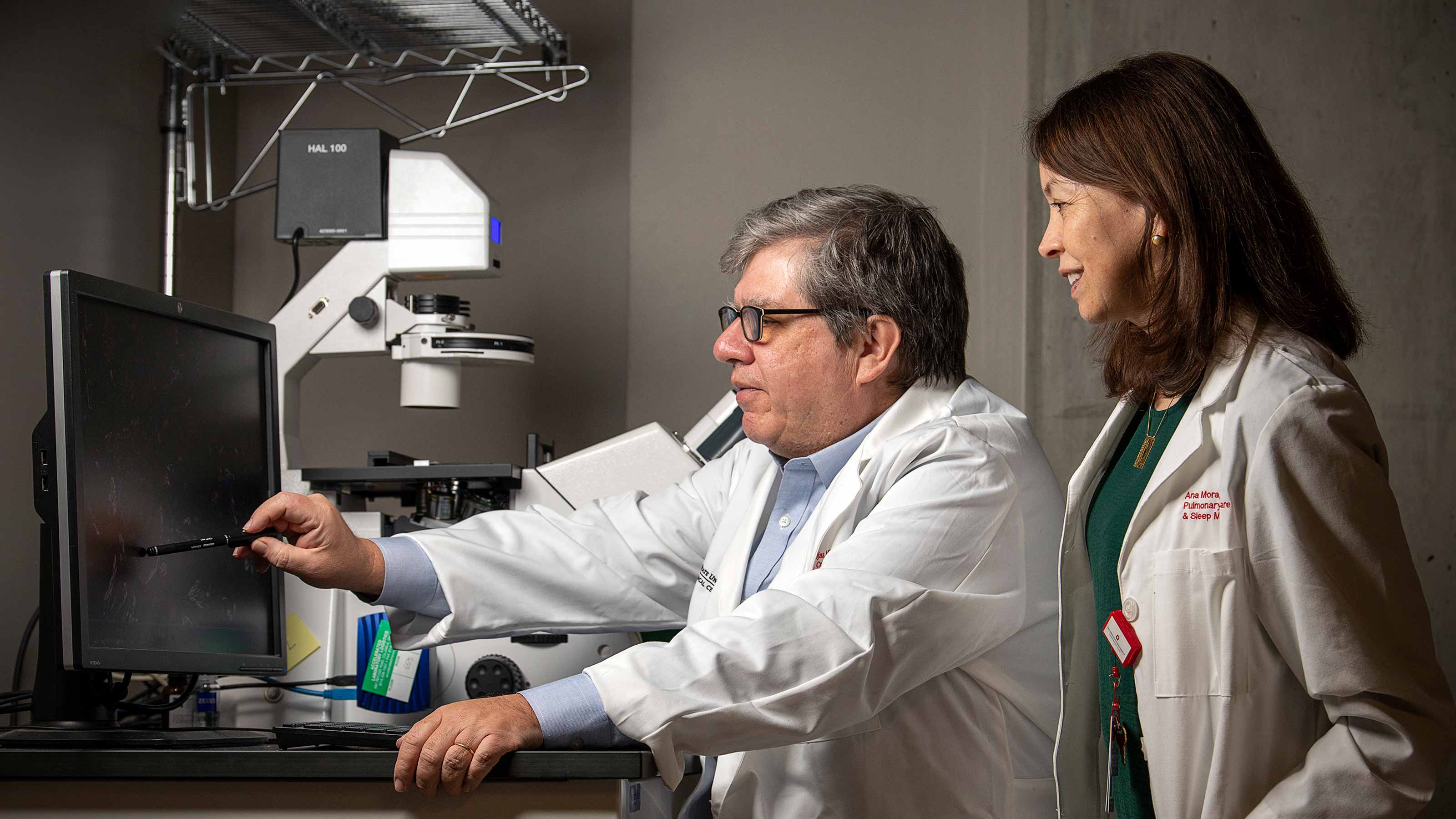Predicting preterm birth with a new blood test
What if health care teams could predict the risk of preterm birth in early pregnancy — one of the leading causes of childhood death worldwide?
If parents and their care teams have a better idea of whether preterm labor is likely to happen, they can be more prepared to intervene with proper support and care, says Shannon Gillespie, PhD, RN, an assistant professor at The Ohio State University College of Nursing and a researcher in the college’s Martha S. Pitzer Center for Women, Children and Youth.
Dr. Gillespie leads a team at the Ohio State College of Nursing, in collaboration with The Ohio State University Wexner Medical Center, that has developed a first-of-its-kind blood test that may accurately predict that risk of early preterm birth.
“We’re essentially trying to create this ‘crystal ball’ of future events,” Dr. Gillespie says. “We are truly producing a future likely scenario early in pregnancy. And so, if the body’s not responding in the right way, we can see that.”
How this new blood test works
Dr. Gillespie’s team studied how key risk factors for preterm birth, such as stress, depression, anxiety and poor sleep, can change how the immune system works over time and how dangerous those changes to immune function can be.
They also discovered that those changes can be measured with a simple blood test that uses less than a teaspoon of blood.
So far, tests of this new blood test show that it might predict preterm birth risk with up to 97.5% accuracy. Dr. Gillespie notes that this can help health care providers flag those risk factors and create a prevention plan before their patient experiences any symptoms.
“It should feel as simple as a test for anemia,” Dr. Gillespie says. “So these things can be available for everyone that’s interested.”
Why we need a test to predict early preterm birth
A blood test that can identify risk factors for preterm birth can help parents and their health care providers take preventive measures to ensure a healthier pregnancy and baby.
“We don’t want anyone to have to get sick; we don’t want anyone to have to have contractions [too early],” Dr. Gillespie says. “We want to say, ‘How will you handle these things?’ If it’s a way that we know is linked to the risk, then let’s do something about it.”
Ebony Wilson is one mother who’s experienced the difference of those preventive measures. In her first pregnancy, she didn’t anticipate any complications. But when she went into labor at 20 weeks, she and her husband lost their son.
“If a blood test is going to report whether I’m a high-risk pregnancy, low-risk pregnancy or anything in between, that is just a great nugget for me to know so that I can process in my pregnancy the proper supports that I need to stay pregnant and be happy in my pregnancy and enjoy this,” Wilson says. “Because giving life is to be enjoyed as best as possible.”

In her second pregnancy, she was able to be better prepared, understanding what risk factors she had that might predict early labor. Her daughter, Ava, was also born early at 23 weeks, but she survived, spending six months in the NICU. Today, she’s a thriving 3-year-old.
Next steps in this research
The research team behind this blood test are working on a $2.3 million grant from the National Institutes of Health/National Institute of Child Health and Human Development to ensure that it works as accurately in larger groups of pregnant patients.
The team is also working on identifying treatments that can “reset” immune responses back to normal levels.
“It’s all about the patients and their families,” Dr. Gillespie says. “They are my inspiration, my reason for persevering and staying committed to this pursuit of knowledge. I’m hopeful that this study will lead to a future where all moms are cared for with great thought and consideration and all babies have more time with mom — including that precious time in the tummy.”

We are transforming the future of health
Your support of the College of Nursing touches the lives of people everywhere and helps us prepare the next generations of health care leaders.
Give today








